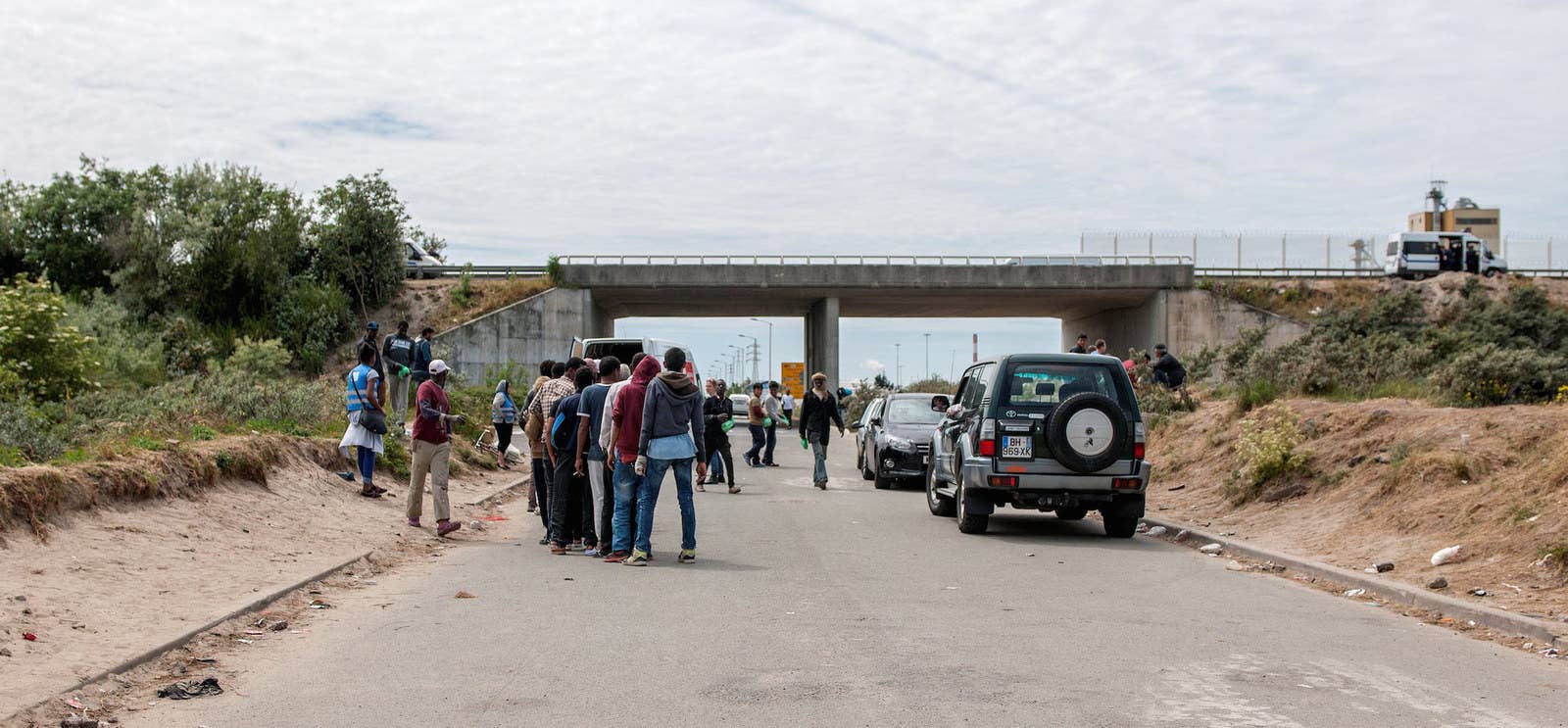
Daniel Fsai, 17, sits on the side of a Calais motorway in the searing heat as lorries whizz past. About an hour ago, when there was more traffic, the lorries were moving more slowly and he hopped on to the backs of a few, hoping to make it to the UK. He’s already got to the border three times today, making it a few miles down the road before being discovered and having to walk back up the motorway.
Daniel is from Khartoum, and has been in Calais for nine months. He is one of more than 3,000 migrants in the area (up from 650 a year ago) who are trying to cross the border. As the numbers rise, so too does the police activity. “Police are using pepper spray,” he says. “They used it on me once today and twice yesterday.” There are other dangers besides the police. Two weeks ago, a driver heard a knocking from inside his lorry and had to let a young man out; he had hidden inside a -25ºC fridge to escape discovery by border police, but it proved unbearably cold.
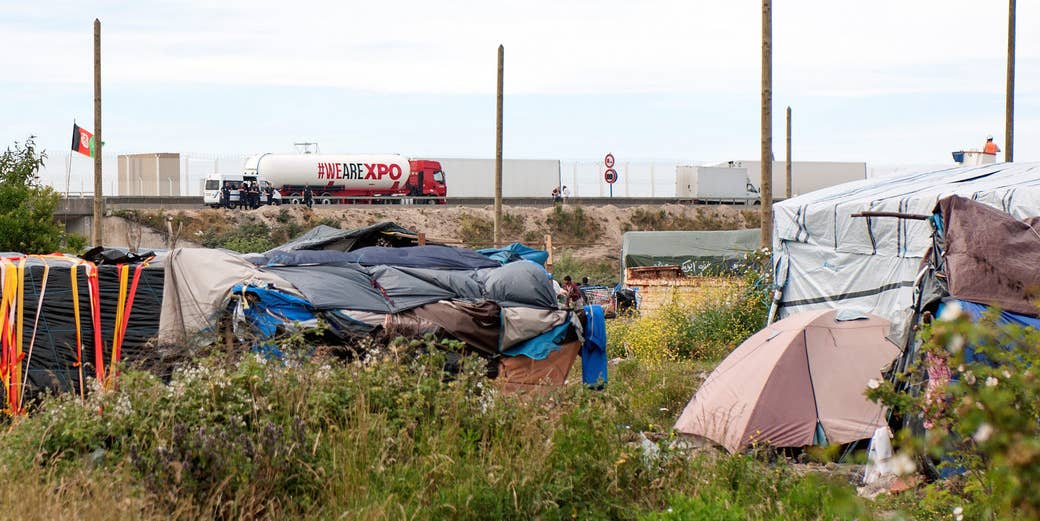
The dangers haven’t deterred the migrants crowding just off this one-mile stretch of the motorway, where they're resting in the shade and waiting for traffic to build up again. Minutes earlier, a truck driver hooted at a police van stationed along the side of the road and pointed to a yellow truck in front of him. As the police van chased after the truck, about 30 migrants stood up, previously hidden by the long grass. One twentysomething man tells me the prime time to try and board is between 1 and 3am. “It takes two hours to get there [to the motorway],” he says, “but that’s when it’s slowest and easiest to get into lorries.”
When people are caught in the backs of trucks at the border, drivers and the companies they work have to pay €2,800 each per migrant, and drivers have an informal agreement to let the others know if anyone’s snuck on board. Gilles Tech, a 42-year-old truck driver headed to Dover, has stopped by the side of the road to call the police after he saw migrants enter a truck in front of him. “It costs so much money, it’s more than a salary. That’s why we have to call the police,” he says, before offering the people on the side of the road some water.
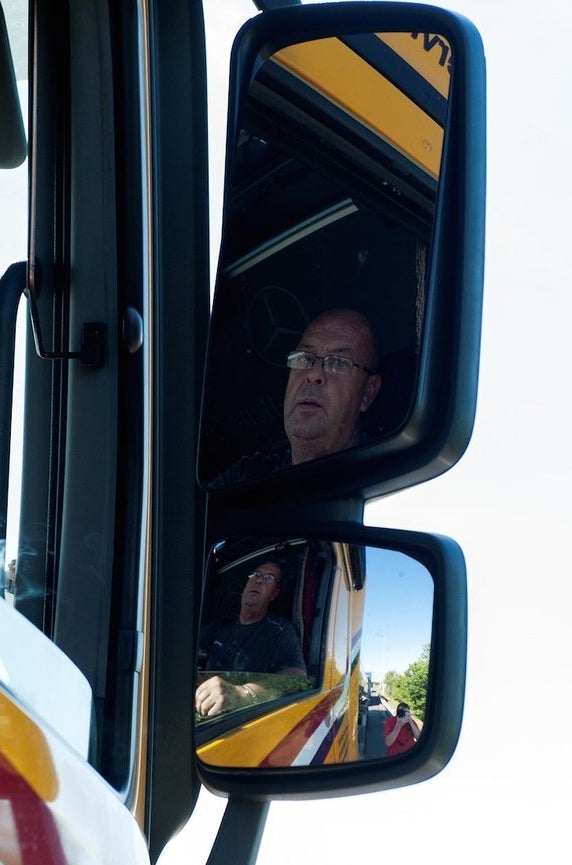
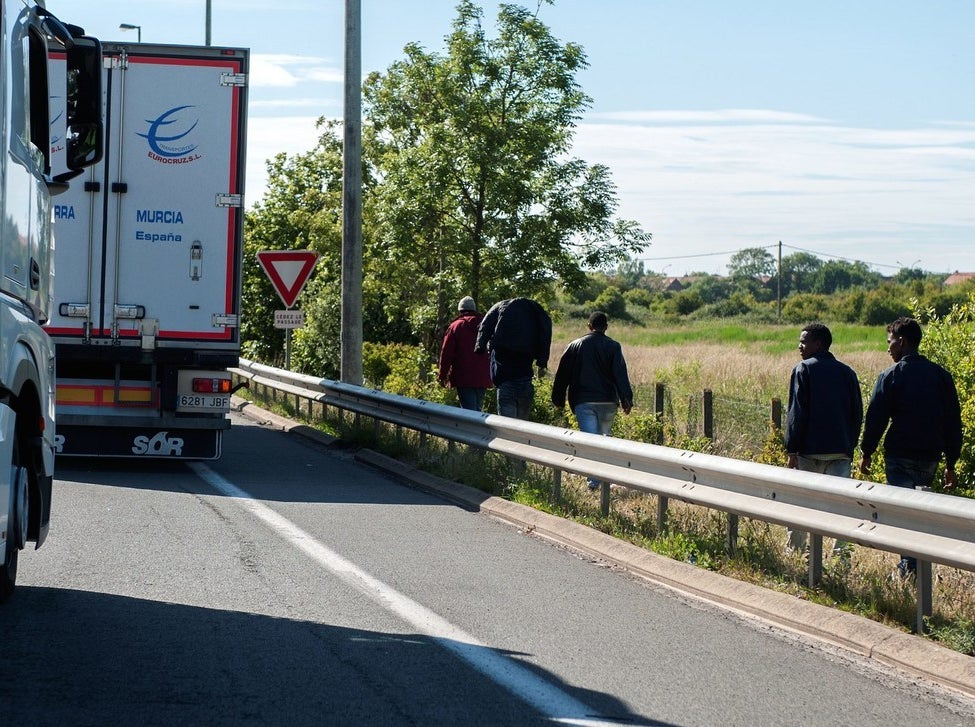
A Scottish driver who wants to be named only as Colin for fear of repercussions from his company is more sympathetic towards the migrants. “It’s not their fault,” he says. “They’re just trying to get by.” His stance is echoed by many of the locals I talk to. Benoit Grancier, who runs a hotel near the centre of town, says the migrants haven’t affected his life in any way. “My social life hasn’t changed,” he says. “Life is pleasant in Calais. It’s not a problem to go out in town or go for a walk or see my friends in the evenings.”
A few miles away, on the edge of Calais, 3,000 migrants live in a state-sanctioned slum in an area of scrubland that used to quite literally be a dumping ground. Up until 13 years ago, refugees in the area found shelter at Sangatte, a Red Cross shelter. That was closed down after British MPs complained about its proximity (two miles) to the Channel tunnel, claiming it encouraged migrants to cross the border. After Sangatte was razed, migrants in the area started their own camps around Calais, segregated by nationality. Some found places in the city centre to squat. Others found shelter in abandoned factories.
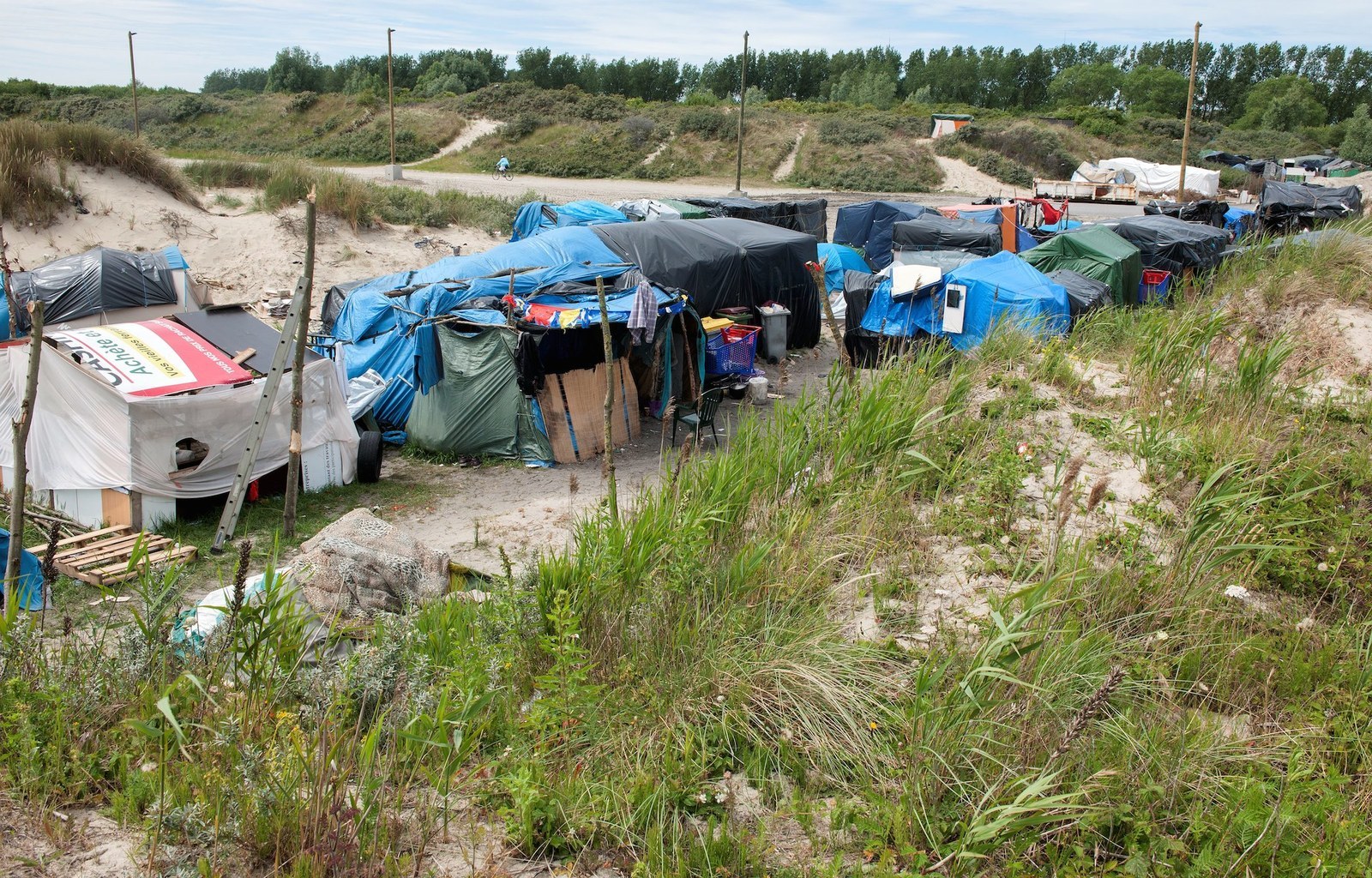
But three months ago French police forced the largely Sudanese, Somalian, Eritrean, Libyan, Syrian, and Afghan migrants out from their various campsites across town and moved them to a new site beside Centre Jules Ferry, a former children’s centre that provides sanitary and other facilities to migrants during the day.
Outside the camp, which the migrants refer to as “the Jungle”, I speak to Syed Etim, 23, who says he fled Sudan because of the genocide. He wants to go to the UK because in the refugee camp he used to live in, he learned English. He refuses to have his picture taken. “I need to shower first,” he explains.
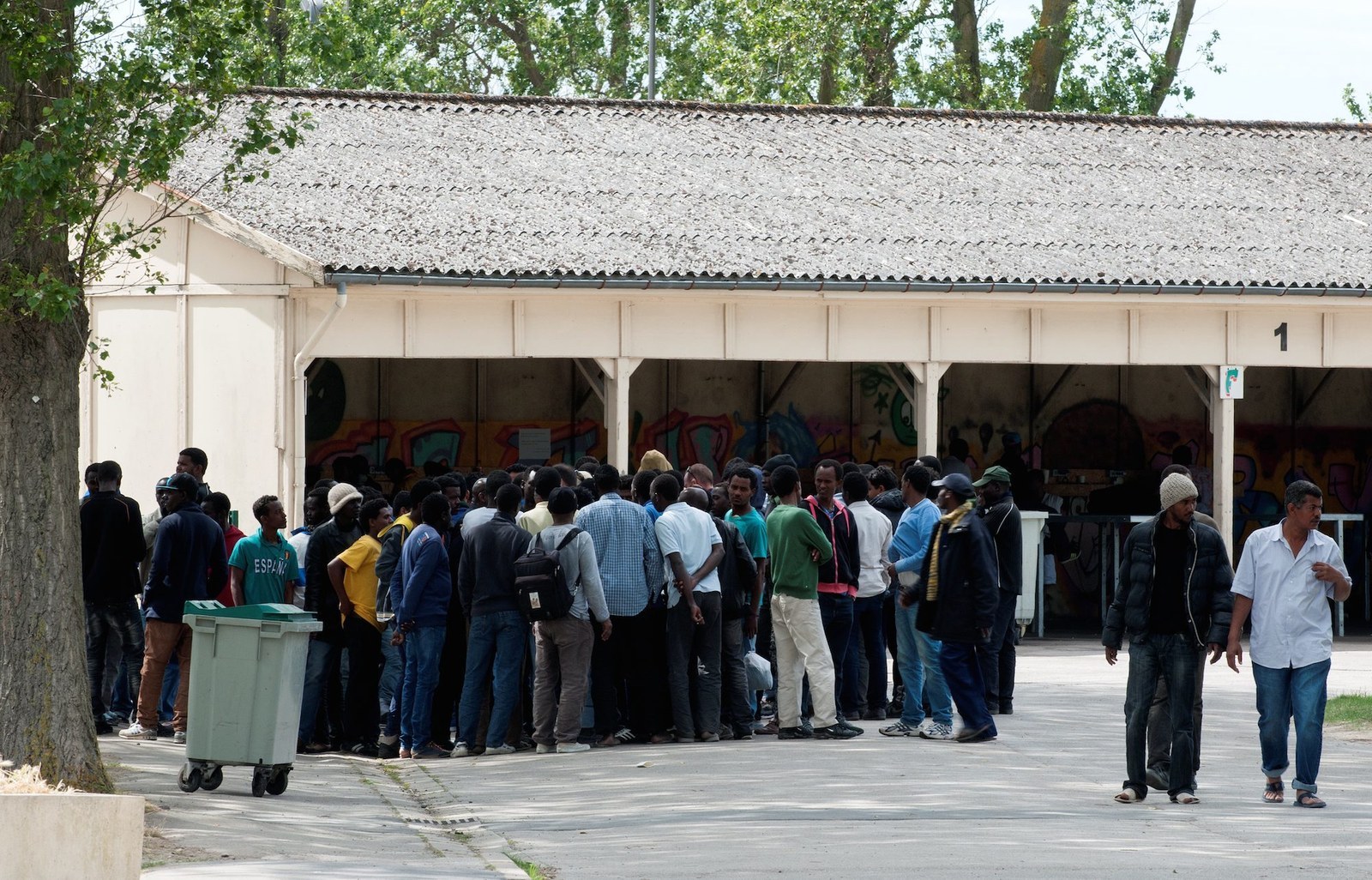
Centre Jules Ferry, which also provides accommodation for about 100 women and children, opens at midday, and is at some points more than a kilometre away from the main campsite. It has quickly taken on a crucial role in the migrants’ daily routines. When the centre opens, some queue to get a ticket for a four-minute shower at an allotted time, while others make use of power outlets to charge their phones. At 5pm, there is another queue, this time for the one meal a day they are allocated.
But there are other sources of food. Alpha Dia, 32, has been in Calais for six months, and has built an impressive home for himself. He collected bits of discarded wood to make a frame, used plastic sheets to insulate it, and then made a roof that required 32 people to be lifted on to his new home. He’s also built himself a kitchen with a hob to fry the eggs he collects from two chickens he keeps in a little coop.
Like many of the migrants in the area, he has savings he has collected from working while travelling. He left his home country – which he refuses to name because he’s fearful that someone from the government will come after him – 10 years ago and has worked as a waiter in Greece, Turkey, and Paris. But after months of trying, he’s on the edge of giving up hope that he’ll ever get to the UK. “I’m going to stay here for a little while,” he says. “I don’t know how to get across.” Now he’s building a small shop where he says he’ll sell “everything”.
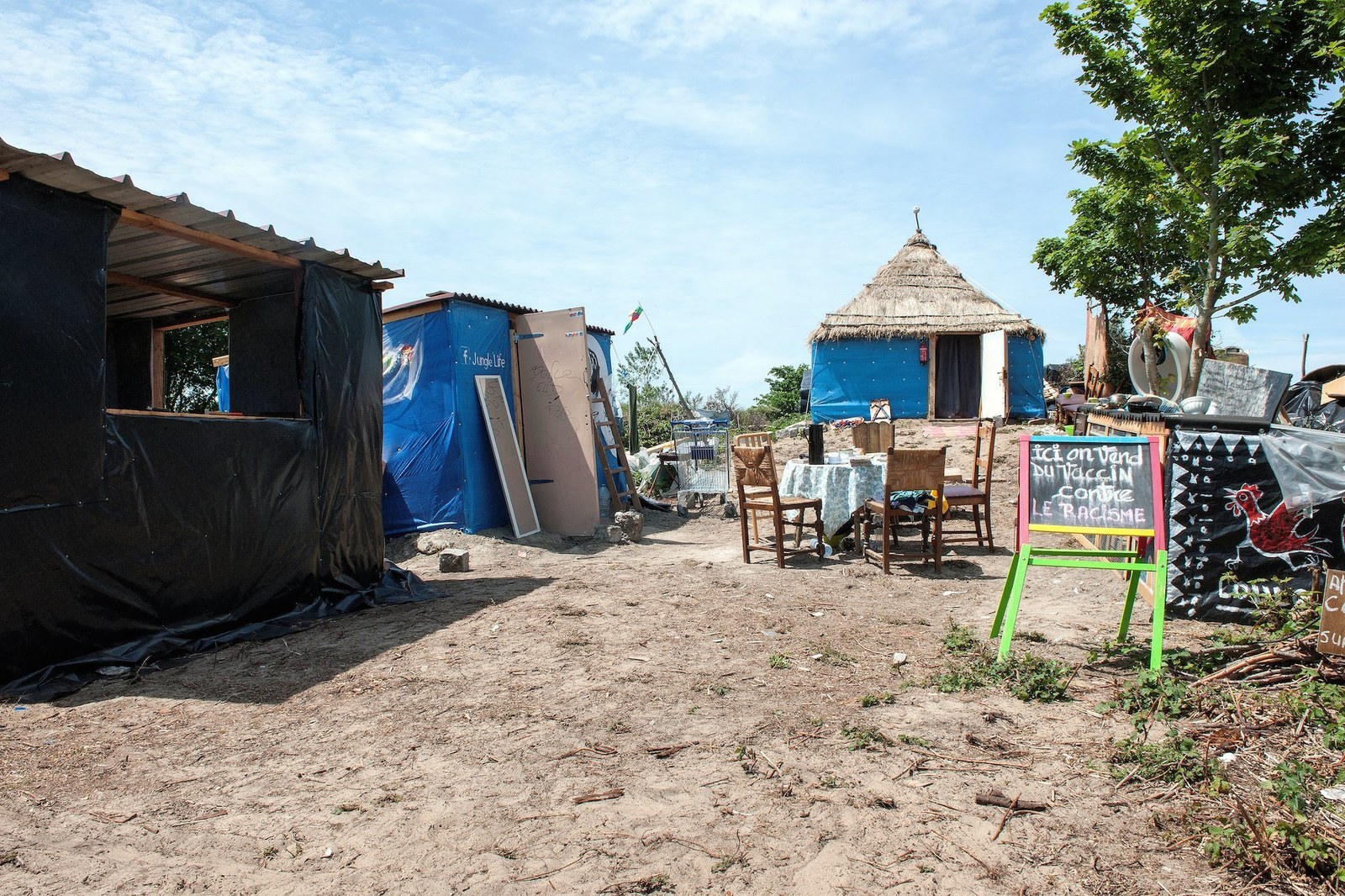
A hundred yards away, Mohammed Ibrahim, 33, is sleeping. Despite living in a tent and having no shelter from the searing heat, he’s taking part in Ramadan, the month when Muslims abstain from food and water between dawn and sunset. But he stirs when his friends call him – I need someone who speaks either English or French, and he fits the bill.
This part of the jungle is where the Sudanese migrants live, he tells me in English. Further up are the Eritreans, and then even further along are the Afghans – two groups Alpha claims often get into fights because of cultural differences. As we walk around, there are barely any women, although many are in the Jules Ferry centre. Some do walk past, mostly accompanied by at least one male companion, but none appear to speak English.
Mohammed shows me around the camp. “This is Ali Muhammed,” he tells me. Ali left Sudan when he was shot twice by the militia and was then tortured in Libya, he says. Mohammed gestures at another man who looks to be in his early twenties. “This is Hussein,” he says. Hussein was caught at the border and claims he was dropped so far away that it took him two days to walk back.
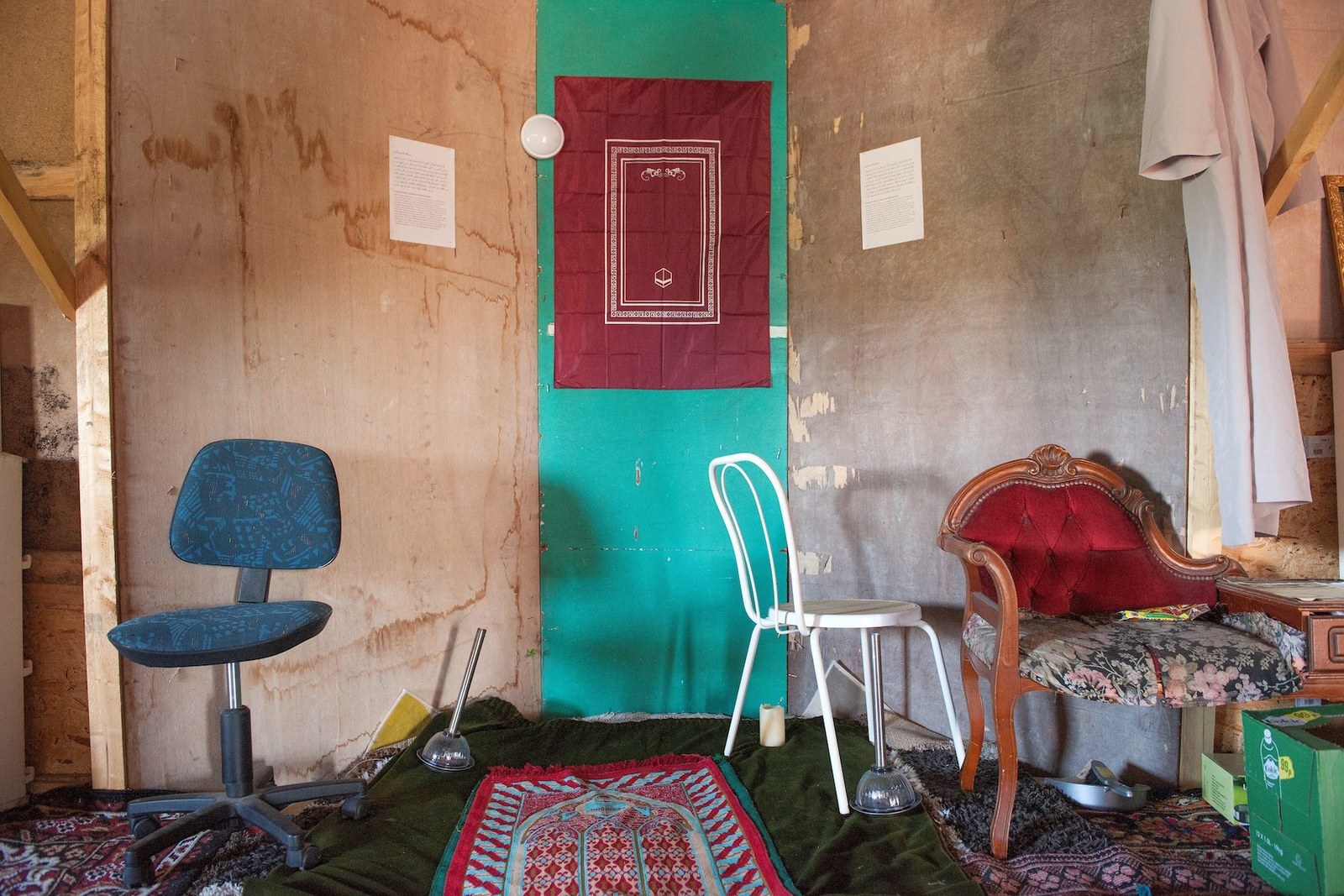
Then Mohammed, beaming, shows me the mosque. Unlike the rest of the campsite, it looks like it’s been given special attention. It’s a large, solid structure that could easily fit 60 people standing to pray. Although the Muslims here have their own prayer mats, they all come together for Friday jumu’a prayers, in which an imam from the Jungle gives a sermon, usually about their life there and the need for patience. As numbers in the community have grown, many lay their own prayer mats outside to join the congregation. The mosque is a central point for many migrants: When they first arrive, they can stay there for a night before someone helps them build their own place. Outside, there’s bread for anyone to take.
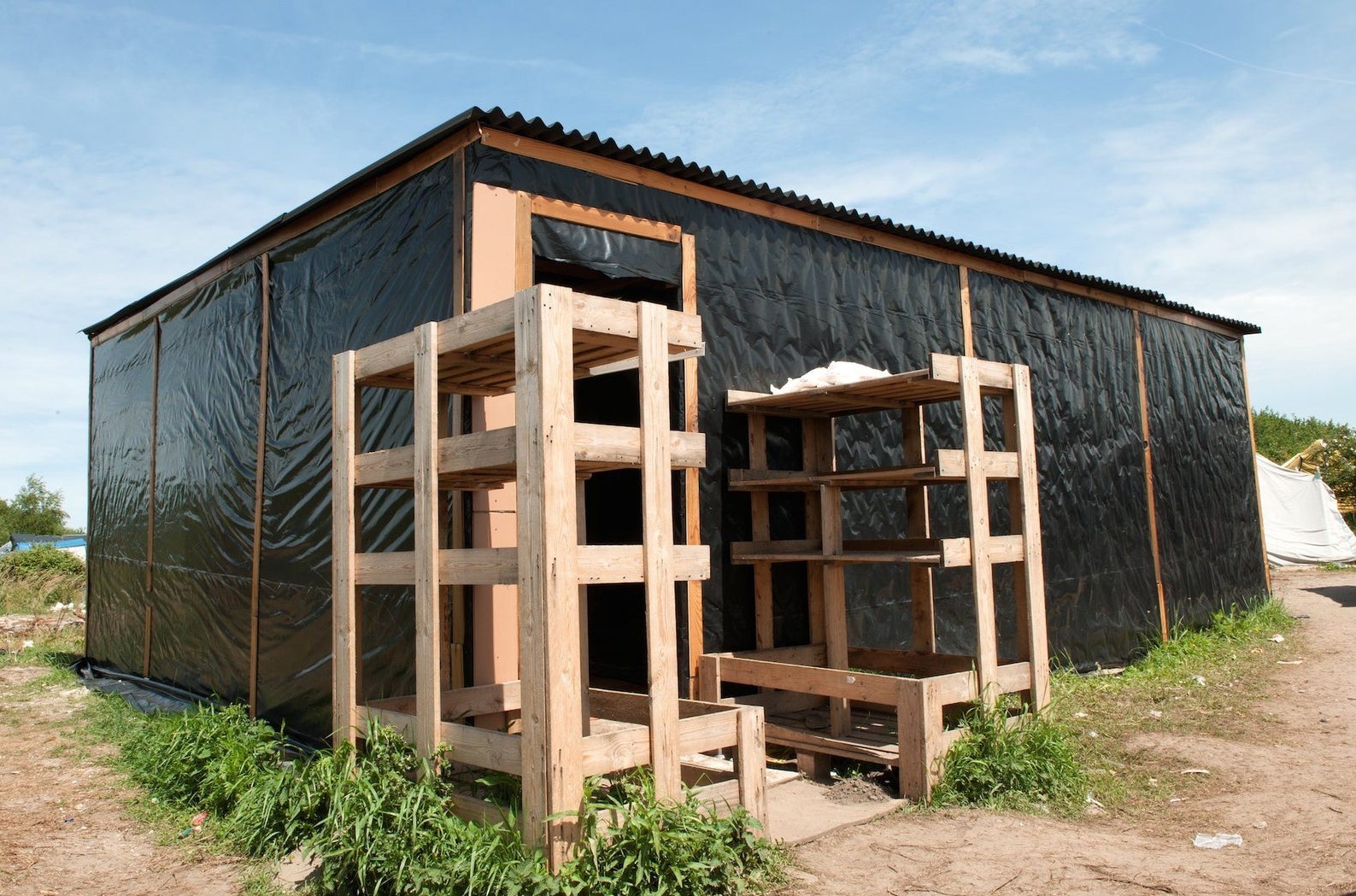
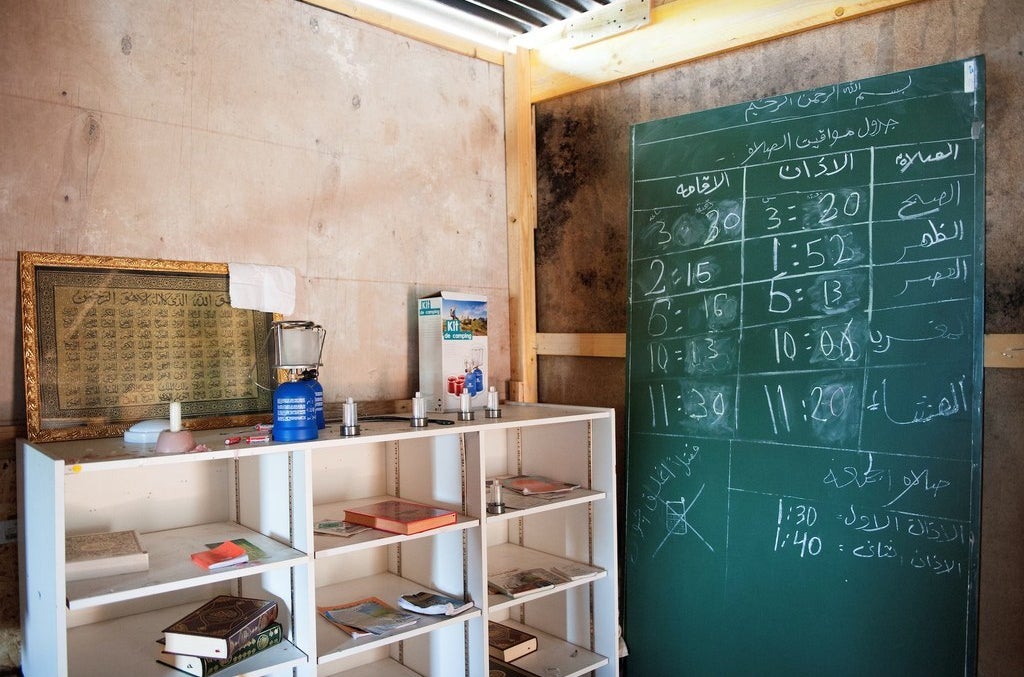
Although the community keeps changing as migrants settle elsewhere or succeed in getting to the UK, a simple universal language has developed. “Whenever someone brings [bread] and they have enough, they just keep it here for anyone to take,” Mohammed says. This type of food – that’s shared among the group – is called kub ba.
When aid organisations come by with food – a mixture of fruit, vegetables, and less stale bread – someone will shout tag ga. This food is often limited and given out on a first come, first served basis. There’s also a special word for sugar, a rare commodity: when. And they shout Abbas whenever police are rushing out with tear gas towards them.
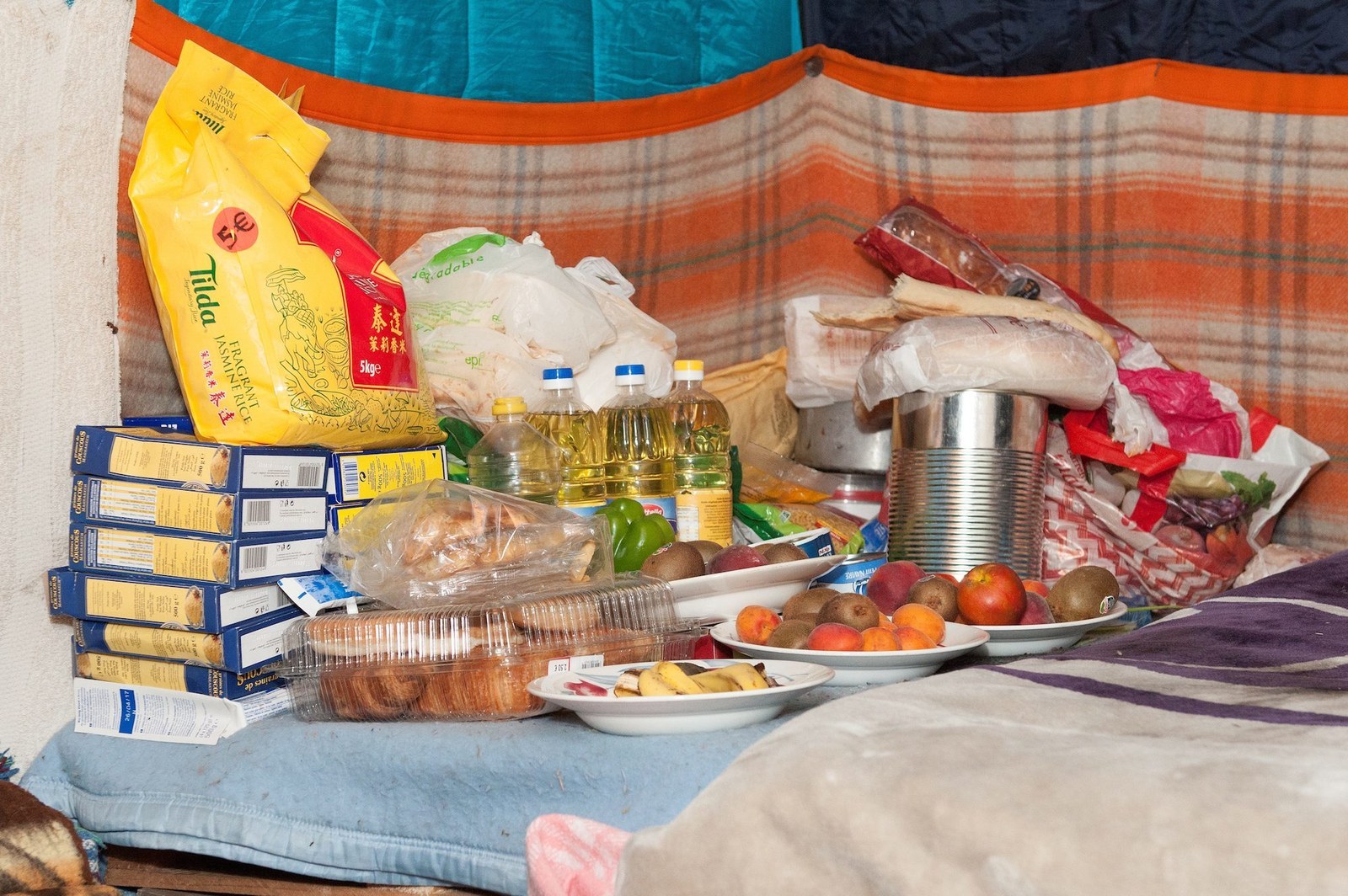
There are a number of organisations who help the migrants. In addition to the food drops they receive from various sources, Medecins Sans Frontières visits and treats migrants who’ve injured themselves after getting injured on the motorway or bruised after a fight. Mohammed’s tour takes me past an old “toilet”, essentially a hole in the ground with several buzzing flies. A few weeks ago the government brought in portable toilets, but previously the migrants were only able to use the washroom at the Jules Ferry centre, which is closed in the evenings.
Less than 50 yards on, we come across a church, and a young man with curly hair and a white vest shouts at us. At this point, another man dressed in a white shirt runs over. He is David, 22, an Eritrean who speaks in a subtle American accent. “You want to see the church? We’ve been promised so many materials and donations and they didn’t give us anything,” he says, with a sorry expression. I realise he’s embarrassed.
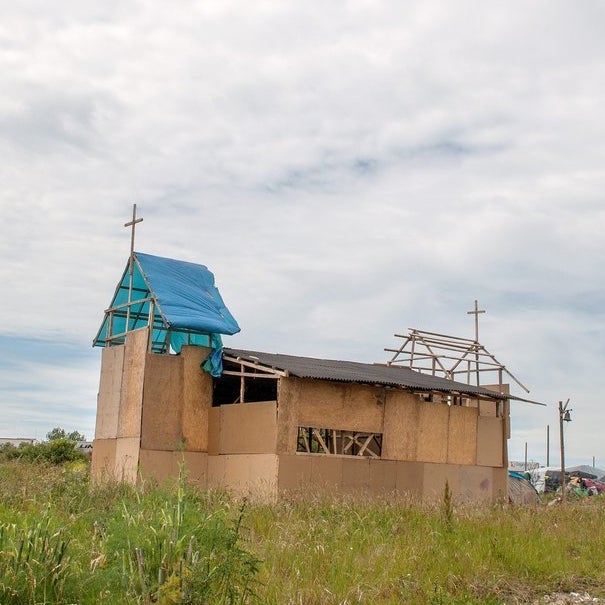
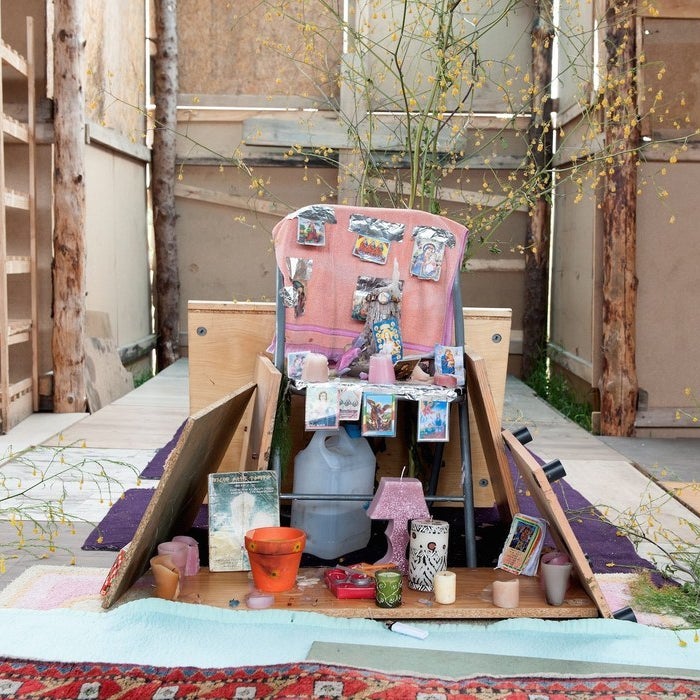
The last church in the camp burned to the ground after an accidental fire lit by migrants trying to keep warm. The incident resulted in heightened tension as Christians blamed Afghans for deliberately causing the fire. Now David, who tells me he was tortured in a Libyan prison, has taken it upon himself to make sure the church is finished. “I won’t leave because I made a promise to God that I would finish building it," he says. "Any way, any how. Once we’ve done this, I’ll try and get on to a train."
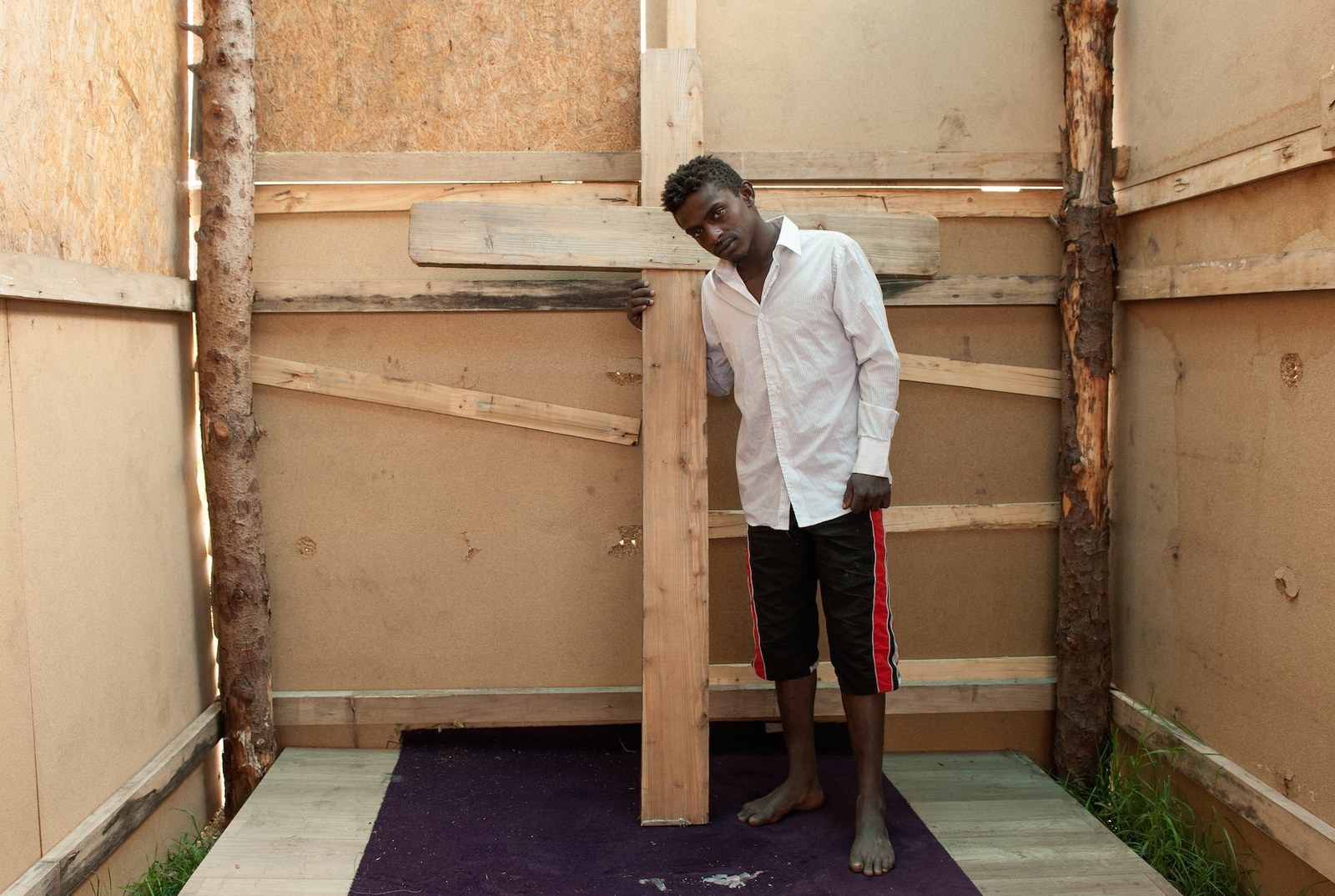
We reach the area of the camp where the Afghan migrants are concentrated. The tents look the same, albeit slightly less solid, but there’s more life here. We walk past a shop selling cold canned drinks before we come across a group playing volleyball. There’s no net, but you can tell they’re good. This is also the first time all day that I spot a child; unsurprising considering many of the migrants here seem to be in their early twenties. The boy looks to be about 7 years old. Just past them are more shops: two restaurants selling hot food, a place selling shoes, and another serving sweet, milky cups of mint tea. Outside, an aid worker sees my face and starts speaking to me in Urdu. He’s from Peckham and living with the migrants. “I’m just doing what I can,” he says.
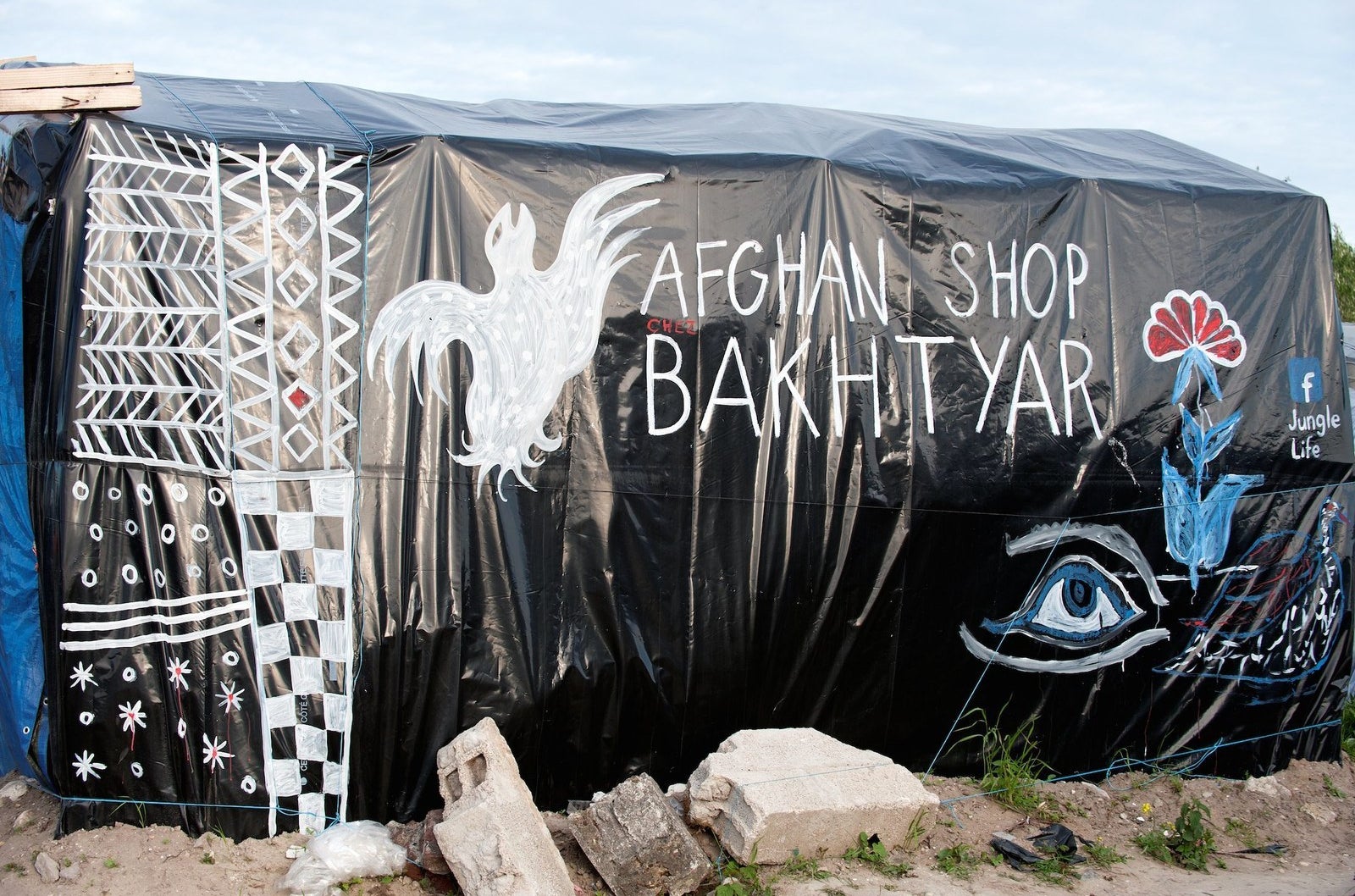

A man from Afghanistan who overheard us speaking Urdu rushes over. “You’re from Pakistan?” he asks excitedly. He’s Gulbaz Natran, a 20-year-old who looks a decade older and is just happy to speak Urdu with someone. He left Afghanistan after his entire family was killed by the Taliban.
At the end of the campsite, as I am heading out, a bus drives into the compound and a queue of about 50 people gathers almost immediately. This time, they’re being given socks and underwear. As one man looks inside his bag, the others around him start laughing: He’s received a pair of children’s underwear with cartoons all over it. It’s a light moment in a place where light moments are hard to come by. Despite the dangerous journeys that many have made to get to Calais, the migrants here haven’t forgotten to how to laugh. They’ve suffered too much to be perpetually miserable.
